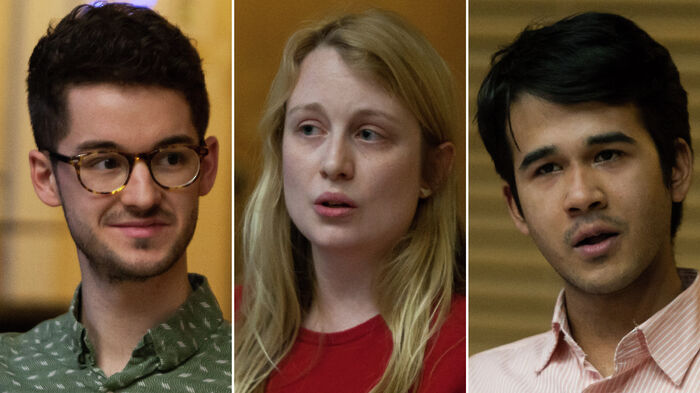
This election is a chance to politicise the Graduate Union
The Graduate Union’s Women’s Officer, Bridget Shaffrey, urges graduates to use this election to engage with the electoral process and support candidates committed to genuine reform

With elections now upon us, we as students are starting to cast our ballots for the next CUSU and GU presidents. While the focus has historically been on who will occupy this position in CUSU, I would like to draw your attention to the importance of the GU election as well.
Currently, the GU’s constitution mandates that the GU maintains an apolitical stance, a position it was quickly criticised for during the onset of the strike. It has become clear to me, both during and before my time at Cambridge, that deciding for neutrality is a vote for complicity; to remain silent is as much of a politicalised statement as showing support.
“We must question how they as individuals have honed in on the systematic issues facing graduates”
Some may argue that staying politically neutral is the best way to represent a broader majority of students, but as current GU-CUSU Welfare Officer Micha Frazer Carroll and Disabled Students’ Officer Florence Oulds pointed out in their Varsity article, “welfare is political”. As students, both on the graduate and undergraduate level, we can no longer ignore how politics and welfare influence one another. Thus, it is the job of student unions to underscore this interrelation and respond accordingly. Steps towards recognising the inherently politicised nature of welfare have been taken by Darshana Joshi and Nikita Hari, the current GU president and vice-president, such as introducing initiatives for graduate mental health and beginning the process to co-opt an LGBTQ+ officer into the executive committee. But as the timeless adage attests, ‘Rome wasn’t built in a day’. The weight of this struggle cannot solely rest on their shoulders. As the graduate community is vast and heterogeneous, to continue pioneering campaigns that address the needs of graduate students, it is essential to look towards the future and evaluate each presidential candidates position on advocacy.
As the Graduate Union’s women’s officer, I cannot openly offer my support to any individual candidate. However I can offer my position as a representative and member of Cambridge’s community: taking political action is not a verbal exercise, it requires steadfast, unwavering practice. So when I say evaluate, I do not mean glancing over and falling trap to manifestos toting group endorsements and memberships; I also do not mean becoming complacent with vague promises to support initiatives and “make sure they work for grads” without recognising the work that is already being done.
When I say evaluate, I mean interrogate what each candidate has actually done and what each candidate promises to do. Question their action plans, advertised beliefs, and critical engagement with each University group, which groups they will work with and how, and how they as individuals have honed in on the systematic issues facing graduates. As graduates, we want a candidate that is going to make institutional changes for the betterment of marginalised students, not a candidate that claims awareness but simultaneously refuses to engage with the those attempting to make the most difference

All the election news, in one place
Comprehensive news and analysis on the CUSU/GU elections, collected.
Visit Varsity’s Elections 2018 hub.
 News / CUP announces funding scheme for under-represented academics19 December 2025
News / CUP announces funding scheme for under-represented academics19 December 2025 News / Cambridge welcomes UK rejoining the Erasmus scheme20 December 2025
News / Cambridge welcomes UK rejoining the Erasmus scheme20 December 2025 Comment / Yes, I’m brown – but I have more important things to say22 December 2025
Comment / Yes, I’m brown – but I have more important things to say22 December 2025 News / SU reluctantly registers controversial women’s soc18 December 2025
News / SU reluctantly registers controversial women’s soc18 December 2025 Film & TV / Timothée Chalamet and the era-fication of film marketing21 December 2025
Film & TV / Timothée Chalamet and the era-fication of film marketing21 December 2025









